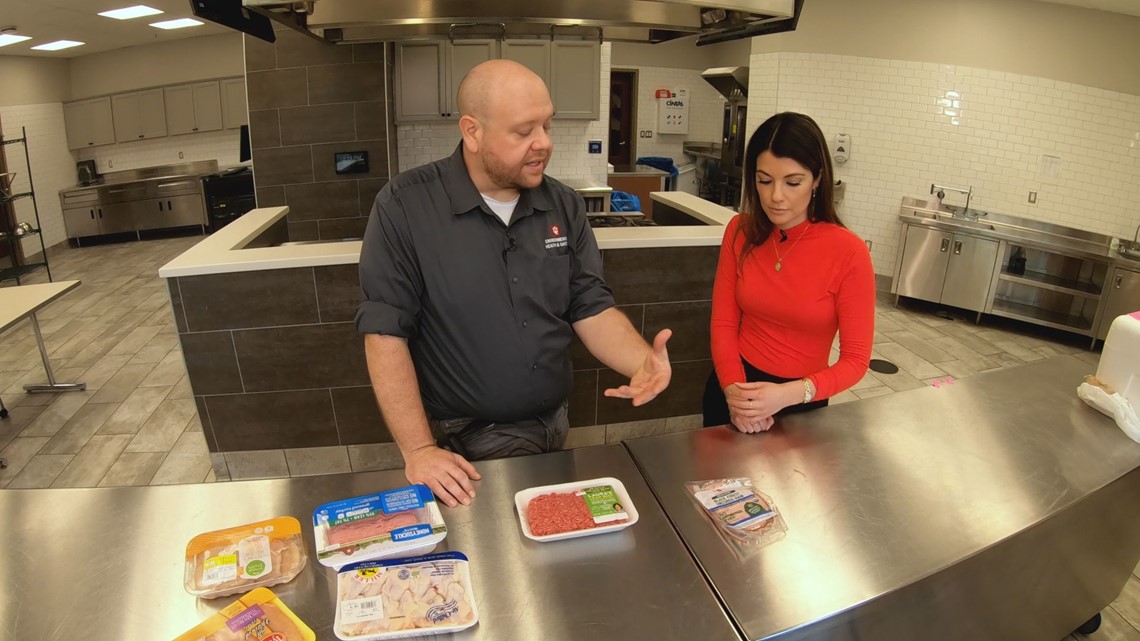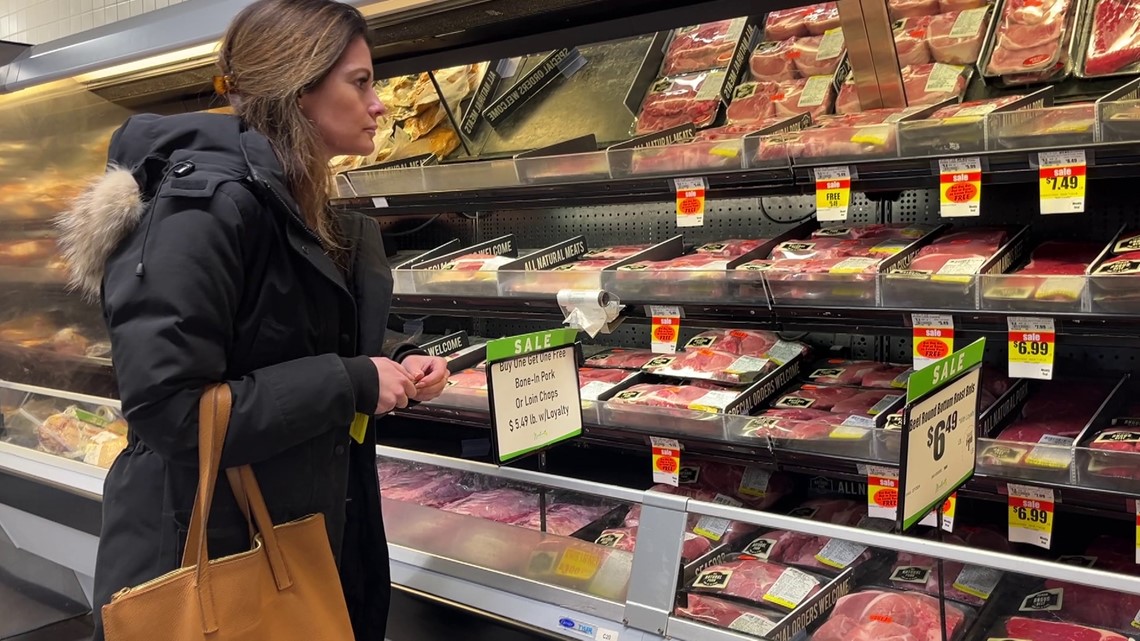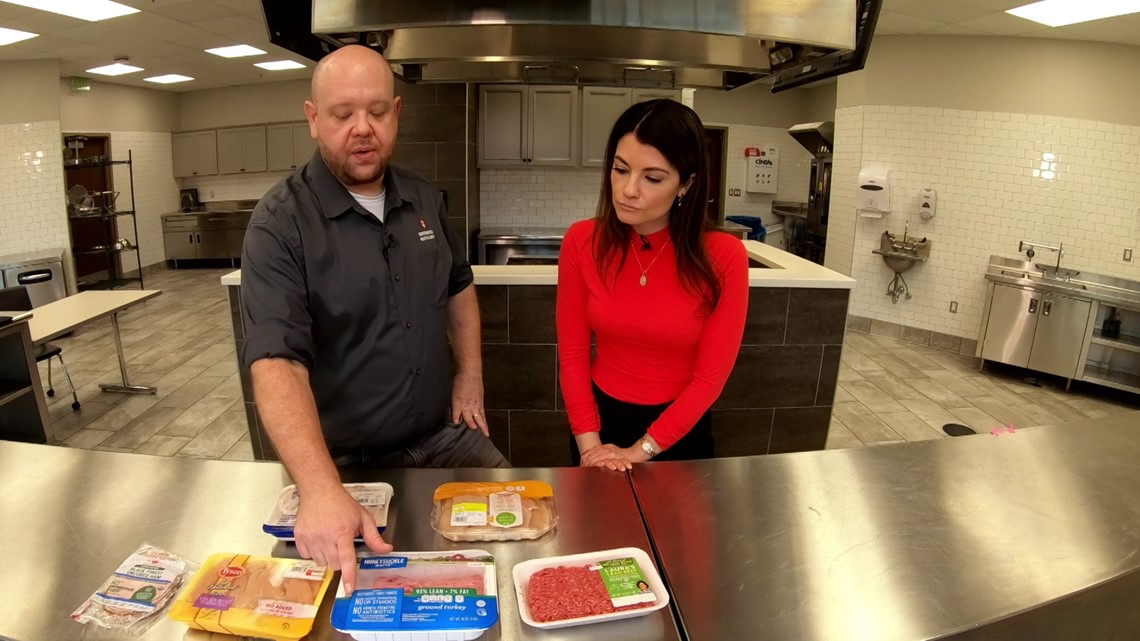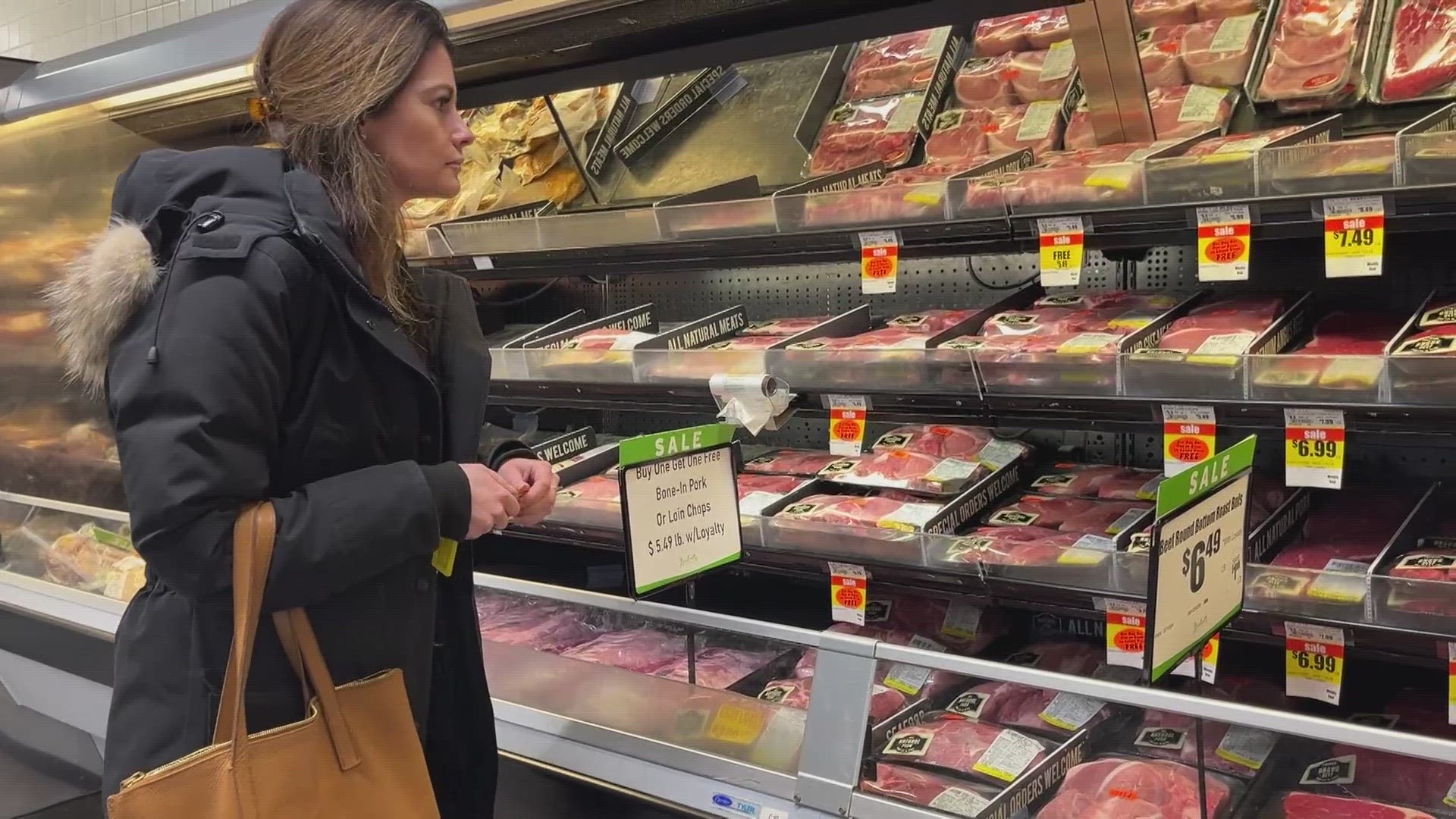INDIANAPOLIS — Some people spend time looking at the animal welfare claims or the variety of other labels on meat. Labels that might say all-natural, no-hormones or no-antibiotics.
But sometimes, matching your preferences to the small print can feel like a research project, footnotes and all.
13News' Allison Gormly went shopping and bought a variety of meats to bring to Indiana University's Director of Public and Environmental Health, Graham McKeen.
McKeen said that if he had to use one word to describe meat labeling, it would be “confusing.”
"There's a lot of things here that may or may not have true meaning, and it's really hard to say what those things mean to the consumer," McKeen said.
A label that he said is clear: organic.
"It has more meaning, and I think really honestly, that's one that you can kind of hang your hat on," McKeen said.


To be called organic, animals need to be raised in conditions that accommodate natural behavior, fed 100% organic feed and not given antibiotics or hormones.
"Say you have an organic animal that becomes sick and you give it antibiotics for that illness to treat it," McKeen explained, "well, now, you can't market that animal as organic. "
But the meat can be marketed other ways, and it is up to you to read the definitions printed on the package. For example, McKeen said if company claims a product is natural or humanely-raised, they need to define the phrase.
"The USDA says, 'Well, you have to say, what do you kind of generally mean about that?' and that has to be on that product."


According to the USDA’s Food Safety and Inspection Service, all-natural means, at a minimum, the meat has no artificial ingredients and is minimally processed.
No hormones means the animal was not given any kind of growth hormone.
On beef, the label “no-hormones” means the place that raised the meat took the optional step of not giving the animal growth-hormones.
For poultry and pork, it is the law that those animals are always hormone-free.
"Pork and poultry products in the US are not able to, by law, have hormones or added steroids. So if you see that there, to me, that's kind of misleading, because if you read the asterisks, it says federal regulations prohibit the use of added hormones or steroids in chicken," McKeen said.
As for antibiotics, there are different kinds to address different issues.
"It [the package] says no growth-promoting antibiotics. Well, what about antibiotics for disease or other things that could still be used?" McKeen said.
The Food Safety and Inspection Services says they are looking to strengthen animal welfare claims.


Right now, the agency says it's checking samples from cattle that are “raised without antibiotics” for antibiotic residue.
FSIS also says it will be revising guidelines to recommend companies strengthen their proof of claims.
One of the ways manufacturers can do that is by hiring a third-party service to inspect facilities and certify claims.
A third-party that offers animal claim certification is Global Animal Partnership or GAP. They would look at things like outdoor raised or entire life on the farm.
Manufacturers who use this service will place a stamp somewhere on the package.


An FSIS spokeserson sent us the following statement:
"In addition to the Meat and Poultry Labeling Terms glossary, we provide guidance concerning animal raising claims (such as “grass fed” and negative antibiotics use) in the following guidance document: Food Safety and Inspection Service Labeling Guideline on Documentation Needed to Substantiate Animal Raising Claims for Label Submissions (usda.gov).
For products under FSIS jurisdiction, FSIS requires any labels with these types of claims to be submitted to FSIS for review and approval before they can be used on products in commerce. FSIS inspectors at the establishment verify that establishments using these claims have FSIS approval and verify that the label is being used appropriately. Through label review, FSIS ensures the claims are truthful and not misleading.
FSIS will only approve animal welfare or environmental claims, e.g., “Humanely Raised” or “Sustainably Raised,” if a statement is on the label showing the name of the entity that established the standard and includes additional terminology explaining the meaning of the claim for consumers, e.g., "TMB Ranch Defines Raised with Care/Sustainably Raised as [explain the meaning of the claim on the label]." If the entity has a website that describes the standards used to define the claim, the label may provide the website address instead of explaining what the claim means on the product label, e.g., “Raised with Care as defined by TMB Ranch at: [website address].
As stated in the June 14 press release, FSIS, in partnership with USDA’s Agricultural Research Service (ARS), is conducting a sampling project to assess antibiotic residues in cattle destined for the “raised without antibiotics” market. ARS is currently analyzing the samples collected. The results of this project will help inform FSIS about future actions.
FSIS will also be issuing a revised industry guideline to recommend that companies strengthen the documentation they submit to the agency to substantiate animal-raising claims. The agency plans to strongly encourage use of third-party certification to verify these claims. We anticipate the updated guideline to be published later this year. Together these actions will be used to strengthen FSIS’ animal-raising claims policies and verification and review procedures."

